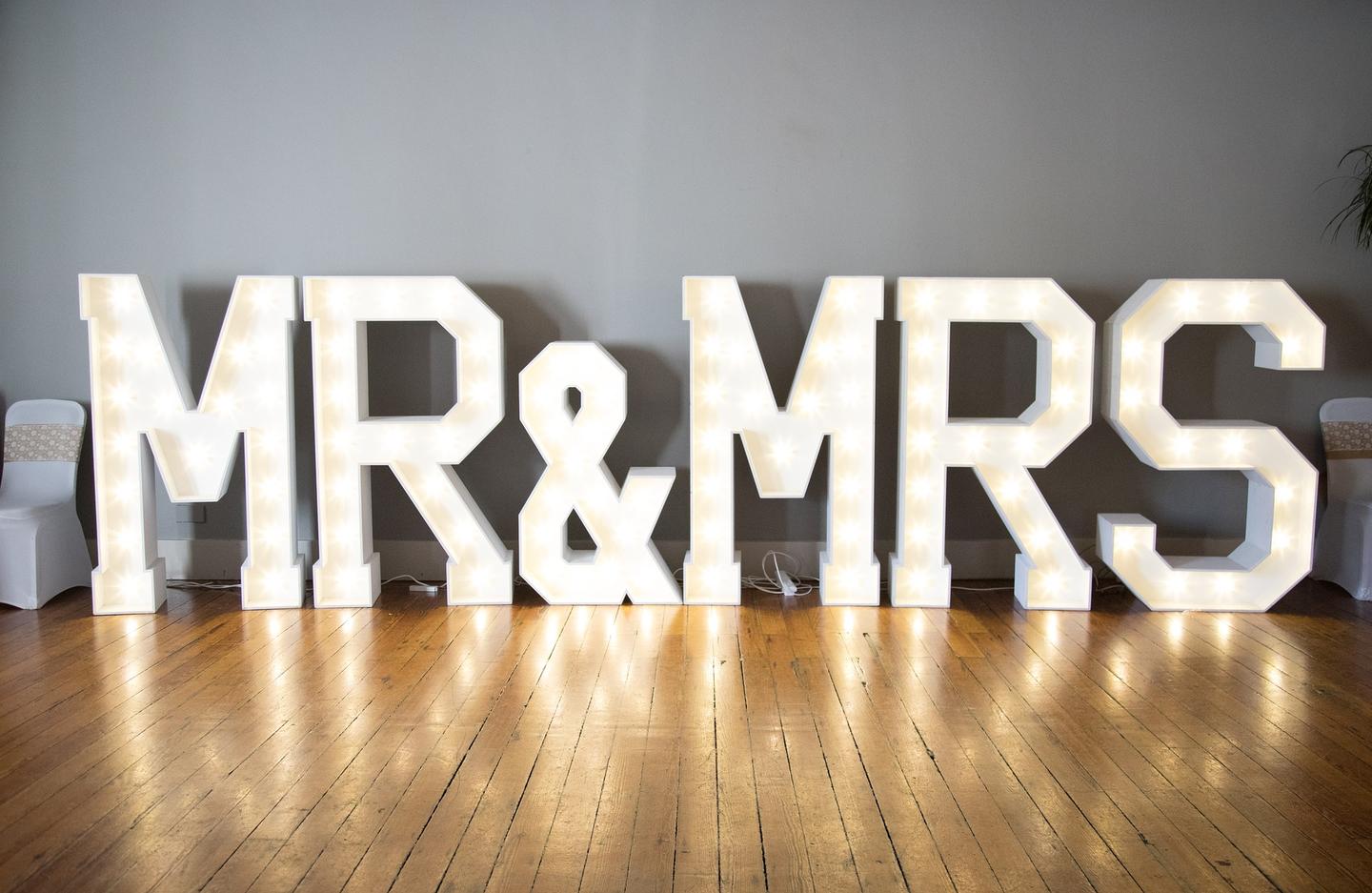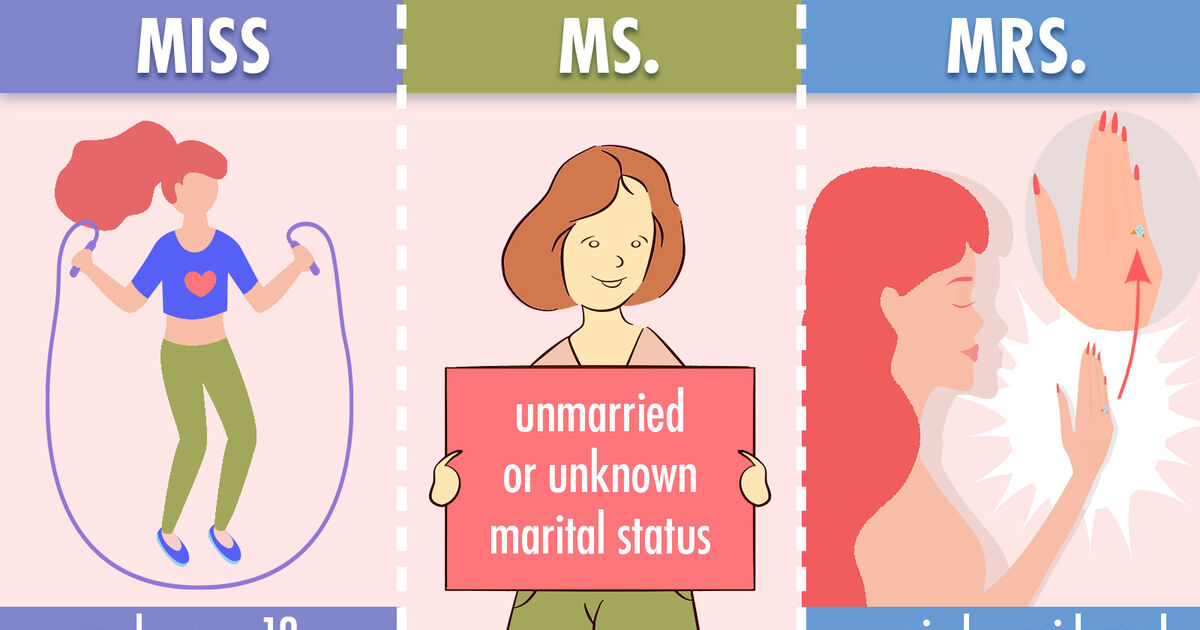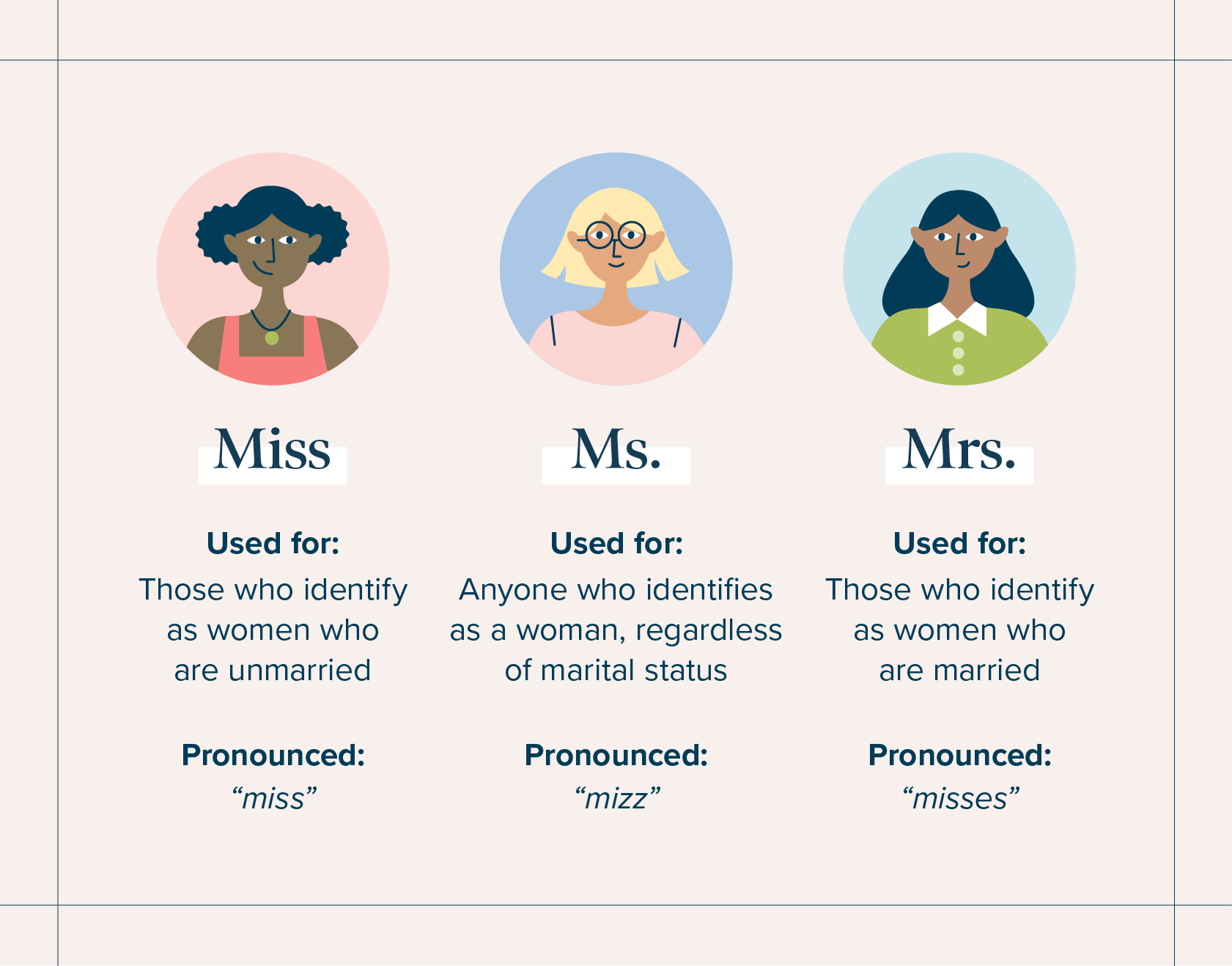
️Mr Mrs Ms Miss Worksheets Free Download Goodimg.co
We hope you enjoyed this video! If you have any questions please ask in the comments.⬇︎⬇︎⬇︎⬇︎⬇︎⬇︎⬇︎⬇︎⬇︎⬇︎⬇︎⬇︎⬇︎⬇︎⬇︎⬇︎⬇︎⬇︎⬇.

Titles Mr. Mrs. Miss Ms. Pronunciation & Different Use YouTube
Miss. Like "Ms." and "Mrs.," the contraction "Miss" is short for "Mistress." It is used for an unmarried woman. It is highly appropriate to use "Miss" for a young girl or woman below marrying age. "Miss" can also be used for a previously married woman, but you should only use "Miss" if you know the woman uses this title for herself.

Mr. Mrs. Miss 和 Ms. 究竟如何区分? 知乎
In the English language, an honorific is a form of address conveying esteem, courtesy or respect. These can be titles prefixing a person's name, e.g.: Mr, Mrs, Miss, Ms, Sir, Dame, Dr, Cllr, Lady, or Lord, or other titles or positions that can appear as a form of address without the person's name, as in Mr President, General, Captain, Father, Doctor, or Earl.

Titles Mr, Mrs, Miss & Ms. Learn The Difference How To Use Them
The full forms of Mr., Mrs., Ms., and Miss are mister, missus, no full form for Ms ., and miss, respectively. While mister indicates a male, whether married or unmarried, missus is for married women. Miss refers to an unmarried woman, usually younger, and Ms. is a neutral title for women regardless of their marital status, be it married or.

How to Use (and pronounce) Mr. Mrs. Miss & Ms. YouTube
Mrs. (pronounced MIS-iz) is a form of abbreviated address that specifies a married woman. Where we can also refer to a married woman as Ms., we would not refer to a single woman as Mrs. Mrs. has no standard spelling. In nonfictional quotations and dialogue, Mrs. will typically retain its abbreviated form.

Miss vs. Ms. vs. Mrs. When to Address a Woman by Mrs., Ms., and Miss
The first is that it allows for a term of respect to be used independently of a woman's relationship to (or apart from) a spouse. Secondly, Ms. translates more directly to the male form of address, Mr., which is not determined by a relationship. Ms. can be used just like Mrs. Examples. Ms. Strickland gave a strong case for her initiative.

What's the Difference Between Miss, Ms., and Mrs.? YourDictionary
Mr., Mrs., Miss, and Ms.: What They Mean And How To Use Them October 7, 2022 Mr. and Mrs.: What do they stand for? The contractions Mr. and Mrs. are short for Mister and Missus / Missis. These contractions, like their longer forms, are used in etiquette to show respect to men and women.

How to Know the Difference Between Miss, Mrs., and Ms. Grammarly
Borrowing from French The French noun for Mister is Monsieur, and the noun for what gets abbreviated as Mrs. is Madame. Respectively, they are pluralized as Messieurs and Mesdames. Therefore, Mr. gets pluralized as Messrs.:

The Difference Between Ms, Mrs and Miss Zola Expert Wedding Advice
We use titles like "Miss," "Mrs.," "Ms.," and "Mr." when using someone's first name could sound too familiar. For instance, when addressing someone you don't know well, you might say "Dear Ms. Turner" rather than "Dear Sophie.". But there are rules about how to use these titles in your writing. The male honorifics.

Top 18 when to use mrs or ms 2022
Ms., Miss and Mrs. are three different ways to address women, normally as a title used before a surname. The words have very different contexts, however, and using them incorrectly can make your writing seem clumsy and even cause offense. Mrs. is normally used as a title for a woman who is married, or who has been a married in the past.

Миссис или мисс обращение в английском языке mr, ms, mrs или miss
Mrs Full Form The full form of "Mrs." is "Missus." The reason the abbreviation contains an R is because it represents the original title, "Mistress." Mrs vs Ms: How to Use Each Correctly When you're deciding whether to use "Mrs." or "Ms.," the safest option is to go with "Ms."

mrs vs ms what is the difference between miss mrs and ms when to use
Miss Berry - We use 'Miss' when addressing young unmarried women. Mrs. Berry - We use 'Mrs.' when addressing a married woman. Ms. Berry - We use 'Ms.' when addressing a woman whose marital status is unknown or unimportant. Madam - We use 'Madam' when addressing a woman in an exceptionally formal situation. (Not common nowadays)

Cuándo usar Mr, Mrs, Miss y Ms en el trato formal What's Up!
"Mrs." was very much the linguistic equal of "Mr," for adults, just as "Miss" was used for young girls in the same way as the now outdated "Master" was used for boys before adulthood. None of these titles entailed any marital status, but importantly, a Mrs. did seem to be accorded a title of respect regardless of the men in her.

Миссис или мисс обращение в английском языке mr, ms, mrs или miss
Historically, "Miss" has been the formal title for an unmarried woman, while "Mrs." refers to a married woman. "Ms." is used by and for unmarried and married women. Finally, "Mx." has gained popularity as an honorific for non-binary people or someone who doesn't want a gendered title associated with their name.

when should you use miss , mrs or ms English fun, Learn english
Grammarly Updated on May 8, 2023 Grammar The feminine terms Miss, Mrs., and Ms. and the gender-neutral term Mx., along with their masculine counterpart Mr., are known as courtesy titles.

How to Use Personal Titles Mr., Mrs., Ms. and Miss ESL Buzz
Mr., Mrs., Ms., and Miss are titles that are used before surnames or full names as a sign of respect. Mr. is a title used before a surname or full name of a male, whether he is married or not. Mr. is an abbreviation for Mister, it is pronounced like the word Mister. Mrs. is a title used before a surname or full name of a married female.